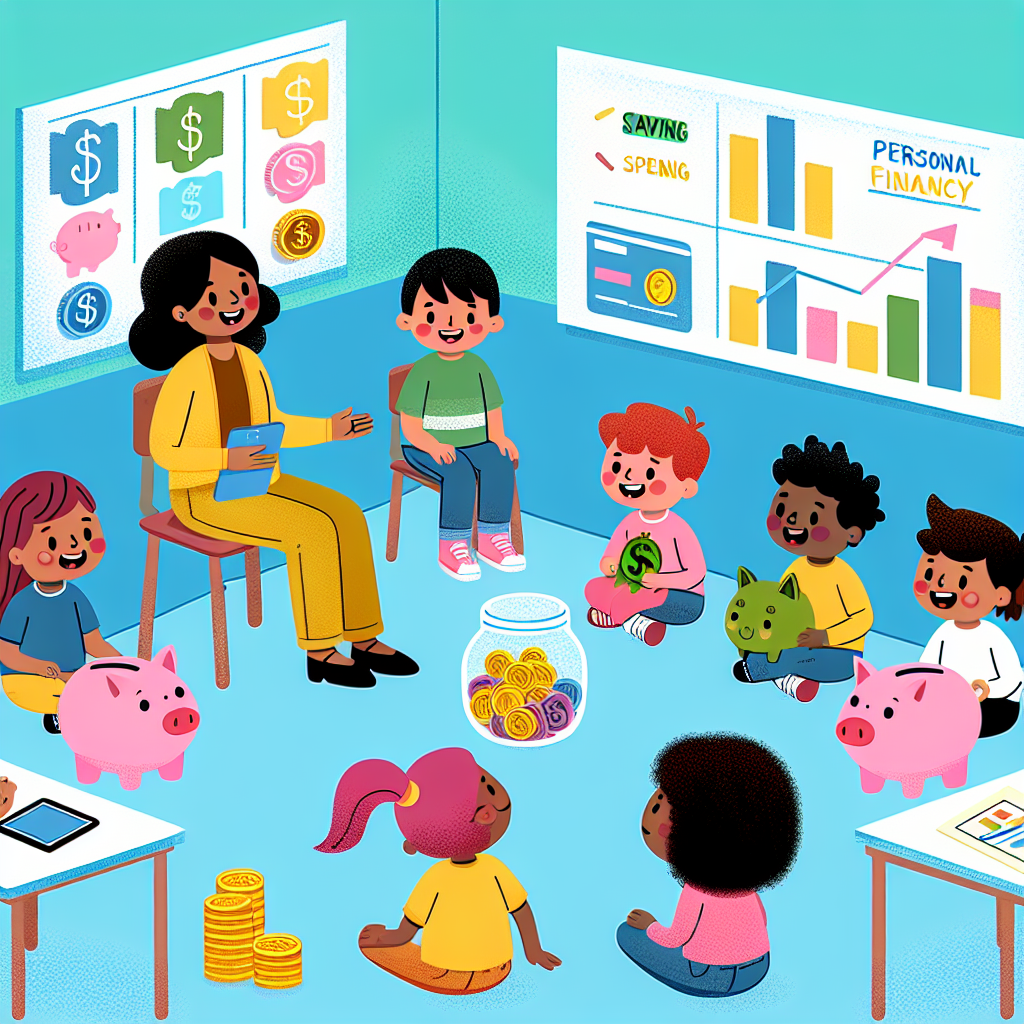
Essential Money Lessons to Teach Kids on Children’s Day
Children’s Day is not only a time to celebrate the joys of childhood, but also an excellent opportunity to instill essential life skills in the younger generation. One of the most vital skills we can impart is financial literacy. Teaching kids about money early on can pave the way for a secure financial future. Let’s explore some fundamental money lessons that every child should learn.
The Importance of Financial Education for Kids
Understanding the value of money is crucial for children as they grow. With the right knowledge, they can make smarter spending choices, avoid debt, and cultivate savings habits that will benefit them throughout life. Financial education should start at home, and it can be both educational and fun.
Start with the Basics of Money
Children need to first understand what money is and how it is used:
- The Concept of Money: Explain that money is a tool we use to buy goods and services, and comes in various forms, like coins, paper bills, and digital transactions.
- Recognizing and Counting Money: Teach young kids how to identify different denominations and practice counting money. Turn it into a game to keep them engaged.
Teach the Difference Between Needs and Wants
It’s crucial for children to understand the difference between needs and wants. This concept can help them prioritize their spending:
- Needs: Items or services that are essential for living, such as food, shelter, and clothing.
- Wants: Things that are nice to have but not essential, like toys, sweets, or expensive clothes.
Encourage your child to list their needs and wants, and discuss which are more important.
Teaching Kids About Earning Money
Understanding the effort that goes into earning money can make children more appreciative and conscientious spenders:
Introduce the Concept of Earning
Help them comprehend that money is earned in exchange for work:
- Assign them small chores or tasks to earn a small allowance. This helps them make a connection between work and monetary reward.
- Explain how adults earn money through their jobs and discuss different professions.
Discuss the Importance of Saving
Saving is a critical skill for financial well-being. You can introduce this concept with the following methods:
- Open a Savings Account: If they are old enough, consider opening a savings account for them. Explain how interest works and how saving regularly can grow their money over time.
- Use a Piggy Bank: For younger children, a piggy bank is a great starting point. Teach them to regularly deposit a portion of their allowance or monetary gifts.
Understanding Budgeting and Spending Wisely
As kids become familiar with earning and saving, the next step is budgeting and making wise spending decisions:
Create a Simple Budget
Teach your kids to track their money by creating a simple budget:
- List the sources of their money, such as allowance and gifts.
- Identify expenses, separating them into categories such as savings, needs, and wants.
- Encourage regular review of their budget to see where they might improve their spending habits.
Smart Spending Choices
Guide them to make informed decisions with their money by:
- Talking about the price and value of items. A higher price doesn’t necessarily mean better quality.
- Using comparison shopping to show that different stores may offer better prices on the same items.
Understanding Charitable Giving and Sharing
Alongside personal finance management, it’s important for children to learn about charity and empathy:
Introduce the Concept of Giving
Teach them about the joy and responsibility of giving:
- Encourage them to set aside a portion of their money for charitable donations.
- Discuss various causes and charities, and let them choose where they would like to donate.
Incorporating Financial Education in Daily Life
Beyond structured learning, take advantage of teachable moments in daily life:
- Discuss family spending decisions during grocery shopping or when buying new household items.
- Involve them in planning family activities or vacations and discuss budgeting for these events.
Conclusion: Building a Foundation for Financial Success
By imparting these essential money lessons to your children on Children’s Day, you help build a foundation of financial literacy that will serve them well into adulthood. Encouraging financial responsibility and savvy spending habits can transform your children into financially independent and responsible individuals, fully prepared for the economic challenges of the future.
Let this Children’s Day be an occasion to celebrate knowledge and empower your kids with the wisdom of personal finance. After all, educating children about money today is more than just an investment in their future—it’s a powerful tool for lifelong success.